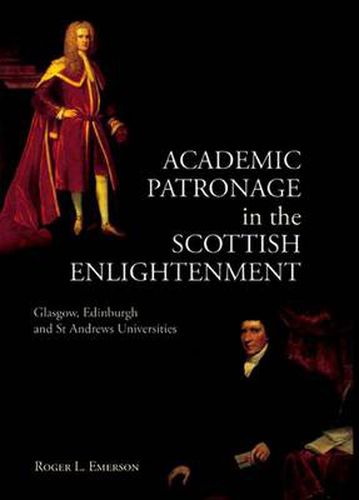Readings Newsletter
Become a Readings Member to make your shopping experience even easier.
Sign in or sign up for free!
You’re not far away from qualifying for FREE standard shipping within Australia
You’ve qualified for FREE standard shipping within Australia
The cart is loading…






This book considers the politics of patronage appointments at the universities in Glasgow, Edinburgh and St Andrews. Emerson explores the ways in which 388 men secured posts in three Scottish universities between 1690 and 1806; from the purge following the Revolution of 1688 to the end of Henry Dundas’s political career. Most professors were political appointees vetted and supported by political factions and their leaders. This comprehensive study explores the improving agenda of political patrons and of those they served and relates this to the Scottish Enlightenment. Emerson argues that what was happening in Scotland was also occurring in other parts of Europe where, in relatively autonomous localities, elite patrons also shaped things as they wished them to be. The role of patronage in the Enlightenment is essential to any understanding of its origins and course. This book is based on much archival study and adds substantially to what is known about the Scottish professoriat during the period. For some its arguments will be of importance; for others it will serve as a useful reference work on the universities, enriching our knowledge of them.
$9.00 standard shipping within Australia
FREE standard shipping within Australia for orders over $100.00
Express & International shipping calculated at checkout
This book considers the politics of patronage appointments at the universities in Glasgow, Edinburgh and St Andrews. Emerson explores the ways in which 388 men secured posts in three Scottish universities between 1690 and 1806; from the purge following the Revolution of 1688 to the end of Henry Dundas’s political career. Most professors were political appointees vetted and supported by political factions and their leaders. This comprehensive study explores the improving agenda of political patrons and of those they served and relates this to the Scottish Enlightenment. Emerson argues that what was happening in Scotland was also occurring in other parts of Europe where, in relatively autonomous localities, elite patrons also shaped things as they wished them to be. The role of patronage in the Enlightenment is essential to any understanding of its origins and course. This book is based on much archival study and adds substantially to what is known about the Scottish professoriat during the period. For some its arguments will be of importance; for others it will serve as a useful reference work on the universities, enriching our knowledge of them.